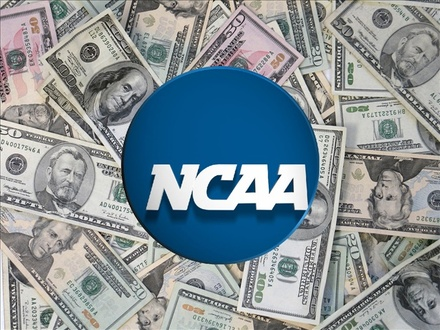The Faceoff: Should Division I college athletes be paid?
The conflict between multimillion dollar programs and the student athletes who generate the revenue
More stories from Scott Procter
More stories from Nicole Bellford

Photo by SUBMITTED
Many D1 athletes don’t have the opportunity to work in addition to training and competing.
Yes:
With the NCAA tournament wrapping up, college athletes are once again in the national spotlight.
With this special time of the year comes the ongoing speculation about the abundant amount of money college athletes bring not only to their schools, but the NCAA as well.
The average Division I player is worth $170,098 per year, with each of the 351 D1 basketball programs taking in more than $4.5 million in revenue on average each year, according to Business Insider. With all this cash being brought in on the backs and through the labor of college athletes, the question “Why are college athletes not being paid?” begs to be asked.
Sure, D1 athletes are afforded the opportunity to have their tuition, room and board paid for, but these expenses are miniscule in comparison to the incredible amounts of revenue brought into these schools by the players.
Being a D1 athlete includes hours of workouts, meetings, practices and competition each week, not to mention the exhausting workload of a college student. Compensating D1 athletes would give them the opportunity to afford decent meals, as balancing a job with school and a sport is virtually impossible.
In 2014, Shabazz Napier, a former basketball star at the University of Connecticut, said, “Sometimes, there’s hungry nights where I’m not able to eat, but I still gotta play up to my capabilities.”
Why should college athletes who bring in millions of dollars of revenue be subject to scraping up money for a pizza?
The NCAA is a multibillion dollar business, and the only people whose earnings are restricted are the very people who bring in the revenue: The athletes. Even college coaches are being paid to match their university’s athletic success, as Jim Harbaugh, head football coach at the University of Michigan, earned $9 million in 2016, according to USA Today.
The NCAA produces $11 billion in annual revenue from college sports, according to Forbes, more than that of the NBA and NHL. It’s time to start treating D1 athletics like the multimillion dollar machine it is and pay the athletes.
— Scott Procter, Freelance Writer
No:
Being a college athlete myself for the past two years and a student athlete for the majority of my lifetime, the controversy of whether or not college athletes deserve salary is a topic to which I have given a lot of thought. However, regardless of circumstance, I do not believe student athletes at the college level should be paid.
Over and over, I hear the argument that college athletes get no compensation for their efforts at the university they represent — especially those involved in sports that dominate the media, such as men’s basketball or football. Such a statement is incredibly ignorant. Any college athlete at the NCAA Division I or II level will most certainly receive a generous scholarship if they are talented enough to be a part of the starting lineup.
That being said, even if these athletes receive “no compensation” for media coverage or merchandise sales, their efforts do not go without any form of reward. Rather, they are being compensated in arguably the most important realm of their lives: Their education.
There are plenty of kids out there who dream of going to college, but simply do not have the financial means to make it happen. However, those talented young men and women who end up earning their spots on an NCAA-sanctioned roster get to make lifelong dreams come true, competing for a university they love and earning a degree — and at a highly accredited institution — for little to no cost beside competing in the sport they have a passion for. If that’s not compensation, I don’t know what is.
According to the NCAA, only 2 percent of D1 end up competing professionally (that’s right, you read that number correctly). This means a huge majority of college athletes likely do not intend on playing basketball or running track for a living. Their degrees mean something to them — their degrees ensure that these kids will have a decent shot at a successful future, regardless of whether or not professional competition is the route they take.
Sounds like a pretty nice payment if you ask me.
— Nicole Bellford, Copy Editor

